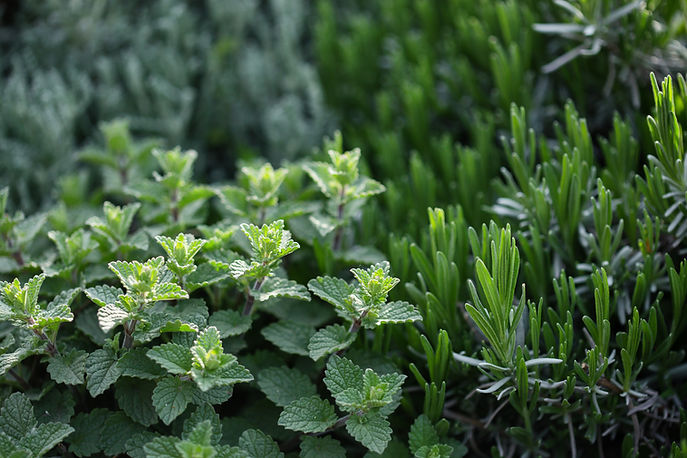

Home Grown &
Hand Crafted
Herbalism: The art and science of using plants to nourish the body, mind, and spirit to support healing and promotion of well-being. Also encompasses ritualistic, folkloric, and cultural symbolism. Can include the use of whole plants or plant extracts in the form of foods, teas, powdered herbs, liquid extracts, incense, smudges, and skin preparations.

1
Boosts Life Source Energy
I pride myself on a unique selection of quality herbs and seeds, with many items exclusively stocked by us here at DreamTalk Healing Services. We’re always on the hunt for new herbal blends that our customers will love. Our collection is updated often so don’t miss out! Chat with me for more information, or better yet, visit the store.


2
Unique Herbal Formula
Being an innovative formula developer, always updating my products with fresh ideas and creative combinations. Check out some of our signature blends below and reach out to learn more.
* TIP: Keep these items refrigerated for best results.
3
Antioxidnt Rich
I use a combination highly effective antioxidants known to improve the appearance of aging skin over time with continued use. Antioxidants play a vital role in skin health by stimulating reactions resulting in collagen production.



4
Find Balance
Magnesium is a key mineral required by our body for maintaining its overall health. It is one of those essential minerals that assist in calcium absorption by the human body and plays a major role in the creation and strengthening of bones and teeth.
5
Better Immunity
Elder, Yarrow, Mint & Boneset enhances your bodies natural defense to cold and diseases. Stop getting sick with by making natural choices to heal the body.
* TIP: Book a sessoin with me to learn how to mix your own herbal concoctions

6
100% Organic
All the herbs I use are intentionally grown to heal the soul body and mind. I ensure they are handled with care and love from harvest to your home. I pride myself on the natural yield from the earth so I will never never use pesticides, waxes or preservatives.
Delivery
Natural Healing serves the city of
Atlanta, GA and Marietta, GA, delivery times are typically 30 minutes.

Thank you for visiting and learning more about Natural Healing. It is my hearts deepest desire to OFFeR healing and self suffiency by teaching.
you too can
learn how to grow and dry your
own herbs at home!
Glossary
Poultice: A topical preparation typically containing plant
solids such as powder or leaves, mashed with water and
applied to the skin.
Infusion: A water extraction of an herb
typically used for softer plant parts such as
leaves and flowers.
Compress: Cloth or gauze soaked in a liquid herbal preparation such as an infusion or decoction, and then applied externally to the skin/body.
Decoction: A water extraction using a continuous heat supply, usually a long simmer (20-45 minutes). Typically used for denser plant parts such as roots, bark, seeds, berries, and mushrooms.
Essential Oil: Distillation of the volatile oils of a plant. Typically not a purification of a singular compound, but a blend of many of the especially aromatic compounds.
Adaptogen: An herb that helps the body resist or adapt to physical, biological, or chemical stressors. By definition, an adaptogen is non-toxic and produces minimal or no side effects (Winston & Maimes, 2007).
Adjuvant: Aids the action of other ingredients of a formula, e.g., encouraging assimilation, balancing energetic or other qualities, or guiding the direction of actions.
Alterative: Describes herbs that help the body eliminate metabolic wastes and assimilate nutrients, therefore restoring normal function and vitality.
Anodyne: Lessens pain by reducing nervous system response or perception to it.
Anticatarrhal: Dissolves, eliminates, or impedes the formation of mucus.
Aperient: Encourages the appetite or digestion, typically preparing the digestive environment. Sometimes used to describe herbs that gently promote elimination, as in a mild laxative.
Astringent: Causes tissue to constrict and tighten, becoming less permeable.
Bitter: Encourages digestive secretions and good digestive function typically by the action on bitter taste receptors. Constituents with this action may also stimulate repair mechanisms in the gut (Hoffmann, 2003).
Carminative: Spice or herb with an aromatic quality that promotes digestion and soothes the gastrointestinal tract, leading to less cramping, bloating, and gas.
Cholagogue: Stimulates the flow of bile, supporting digestive processes. Often bitter in nature.
Demulcent: Rich in mucilage, a slippery substance that soothes, cools, and protects irritated or inflamed internal tissue that is raw, hot, irritated, inflamed, or overexcited.
Diaphoretic: Promotes sweating and elimination of waste from the pores of the skin. In the case of a fever, promotes natural progression of changes in temperature regulation.
Emmenagogue: Impacts the menstrual process by stimulating and regulating menstrual flow and normalizing hormonal levels, often through their action on the liver.
Febrifuge: Promotes the natural process and resolution of fevers, resulting in return to normal temperature.
Galactogogue: Stimulates the production or flow of breast milk in lactating women. They may act hormonally, or may include herbs that are nutritive, to improve milk quality and quantity (Romm, 2010).
Hepatic: Encompasses many actions related to healthy liver function and promotes maintenance of liver health.
Immunomodulant: Tonifies and strengthens the immune system.
Lymphatic: Aids in movement of lymph through the lymphatic system.
Nervine: Herbs rich in volatile oils that have a beneficial effect on the nervous system, acting as a stimulant, sedative, or tonic.
Nootropic: Improve cognitive function, particularly executive functions, memory, creativity, or motivation.
Restorative: An herb that nourishes, strengthens, and tonifies.
Rubefacient: Promotes dilation of capillaries near the surface of the skin, therefore promoting local circulation to bring fresh blood supply to the skin, soothing inflammation or congestion.
Sialogogue: Promotes salivation.
Sudorific: Promotes sweating.
Tonic: This term is used in a variety of culturally dependent ways. It can mean to strengthen and enliven a specific organ or the whole body. In TCM it typically refers to nutritive therapies whereas in Western Herbalism it traditionally (Eclectic physicians a century ago) refers to therapies that promote elimination and reduce excess.
Trophorestorative: A nutritive herb that supports and restores a particular organ or system.
Vulnerary: Encourages healing of wounds or inflammation. `













